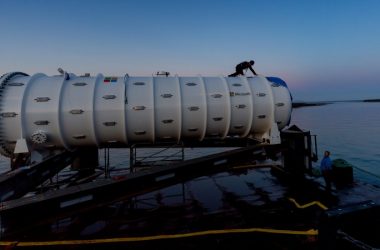Sabari Indian School, a Dubai-based school offering CBSE curriculum has implemented a wireless infrastructure from Aruba, a Hewlett Packard Enterprise company, and introducing iPad-based learning and a ‘curriculum in the cloud’ education model.
Sabari Indian School was acquired in the year 2015 by Al Najah Education Limited, a specialized education investment company that is a part of Al Masah Capital private equity firm. After the acquisition, the management of Al Najah Education Limited decided to make significant technological improvements in order to raise the rating given to the school by Dubai’s Knowledge and Human Development Authority (KHDA) and the IT division was tasked with the responsibility of driving this initiative.
Ashith Piriyattiath, Group Head of IT at Al Masah Capital Management said, “Incorporating technological innovation for learning is key factor in improving a school’s KHDA rating so we were eager to introduce eLearning and iPad-based course delivery. We also wanted to save our students the trouble of having to carry a 5 to 6 kg bag to school each day.”
The School’s existing Wi-Fi infrastructure was inadequate to support its ambitions of getting an iPad into the hands of each student, for which an enterprise-grade, high-density solution was required. Cost-effectiveness of the new solution was an important criteria as well, since Al Masah Group is an investment organisation.
“As a large Group, we have deployed Wi-Fi solutions for a number of our subsidiaries. For the education segment in particular, Aruba is highly cost effective and we found its solutions cost up to 50% less than competitive offerings for the enterprise market. The balance between features, value, future-proof architecture and cost as well as the return on investment potential of the Aruba solution made it the most viable choice,” Piriyattiath stated.
Sabari Indian School deployed 59 Aruba Instant 220 access points (IAP-220) in its classrooms and indoor facilities, while just 4 Aruba Instant 215 outdoor access points (IAP-215) were sufficient to provide complete coverage of the football, volleyball, basketball courts, cricket nets, and other outdoor areas. In just five months, the teams completed planning, design and implementation across the entire campus.
Both the access point ranges feature Aruba’s ClientMatch technology which automatically transitions devices between APs as users roam, giving them a seamless roaming experience.
With the high-performance Wi-Fi network in place, Sabari Indian School rolled out its eLearning initiative, moving to iPad-based learning and a ‘curriculum in the cloud’ model where students no longer carry heavy textbook-filled bags to school, but instead rely on their devices to access all educational material. “It was incredible to see just how excited students, and even staff, were about the new approach to education,” beamed Piriyattiath. “We have managed to make learning more interactive, intuitive and fun than ever before. It is a fine example of innovative technology being leveraged to revolutionize education.”
“The success of this model however, is entirely depended on reliable high-speed wireless connectivity. Aruba has given us the confidence we need to make the move to cloud-hosted educational services,” said Piriyattiath. “The feedback from students and staff has been overwhelmingly positive. Each Aruba AP easily supports over 40 simultaneous connections so we no longer face performance issues even though students and staff are essentially connected from the time they enter the premises till the time they leave.”
As a result of the critical role that the technology will play in improving the School’s KHDA rating, Piriyattiath expects that the ROI for the wireless infrastructure will be achieved in less than two years.
Following the successful rollout at Sabari Indian School, Al Masah Capital Management has already implemented Aruba’s wireless infrastructure in Horizon International School Dubai and Horizon English School Dubai.
“At this initial stage, we are establishing a world-class Wi-Fi infrastructure, fitting of the high-calibre of our institutions. As with Sabari Indian School, this will then act as a platform to support on-going innovation,” said Piriyattiath.
One of the major IT initiatives for the Group is the establishment of a cloud-based centralized data centre. This consolidation of IT will help reduce manpower requirements at individual schools and will simplify the Group’s IT infrastructure. The ability to centrally manage and control the Aruba wireless network makes such consolidation possible. From a single pane of glass, the Group’s network team can monitor and control APs at each institution, irrespective of their actual physical location.
Piriyattiath and his team are also keen to explore Aruba Beacons. “We see great potential for this technology such as its incorporation within student ID cards. This would enable tracking of students on school premises to make sure they are safe and attending classes. We would also like to extend Beacon-based tracking capabilities to our transport buses so parents can be informed of the whereabouts of their children as they commute to and from school,” he said.
Discussions are also ongoing with Aruba to explore how Beacons could be used to develop an eWallet system that is integrated with the ID cards so that students can make trackable cashless transactions at facilities such as school canteens.





